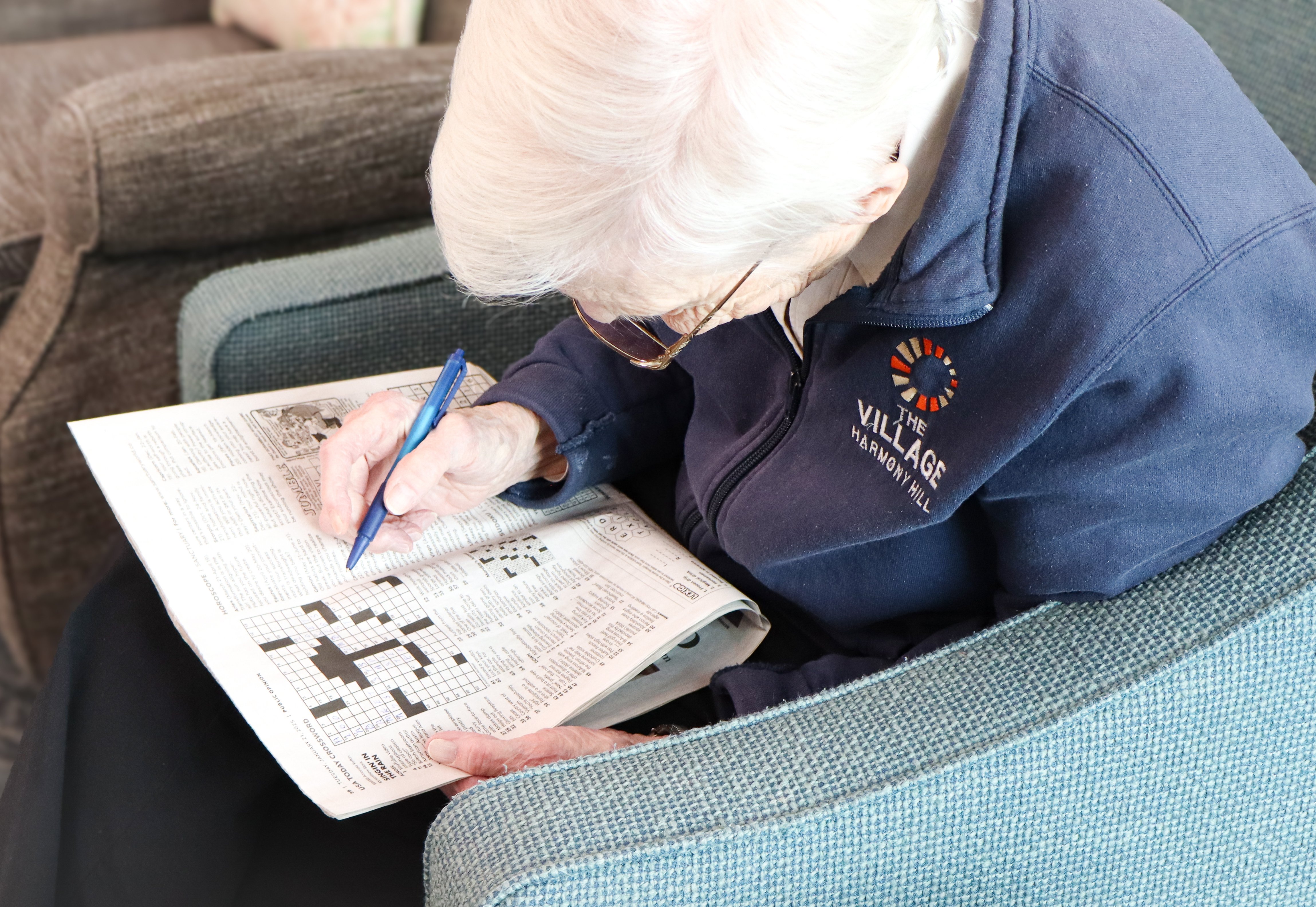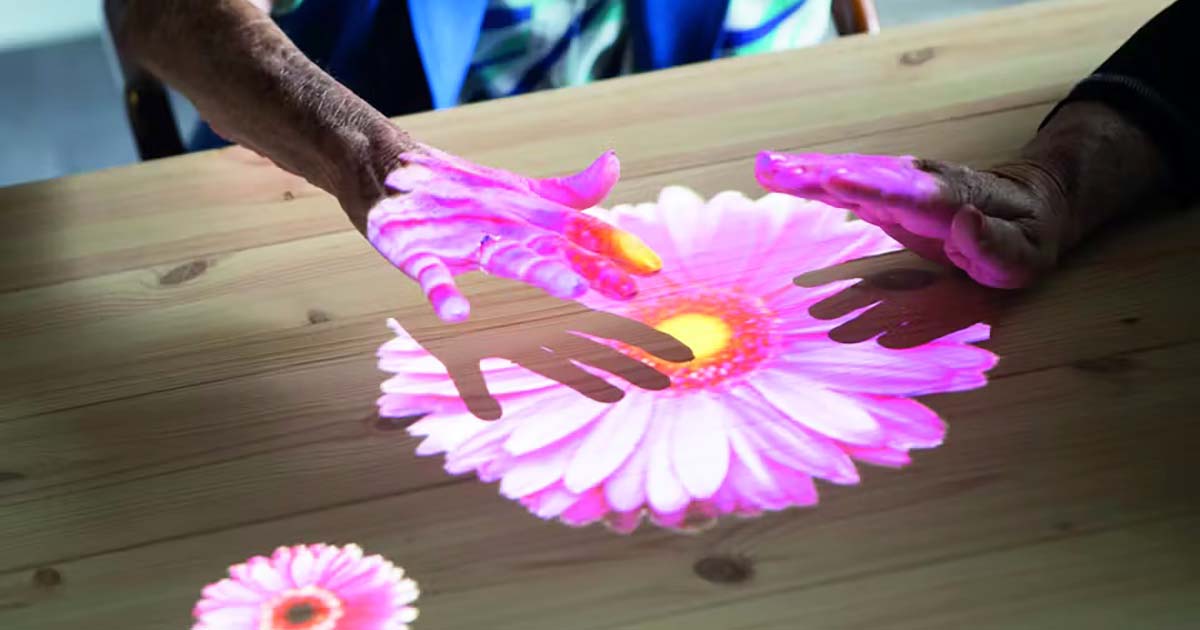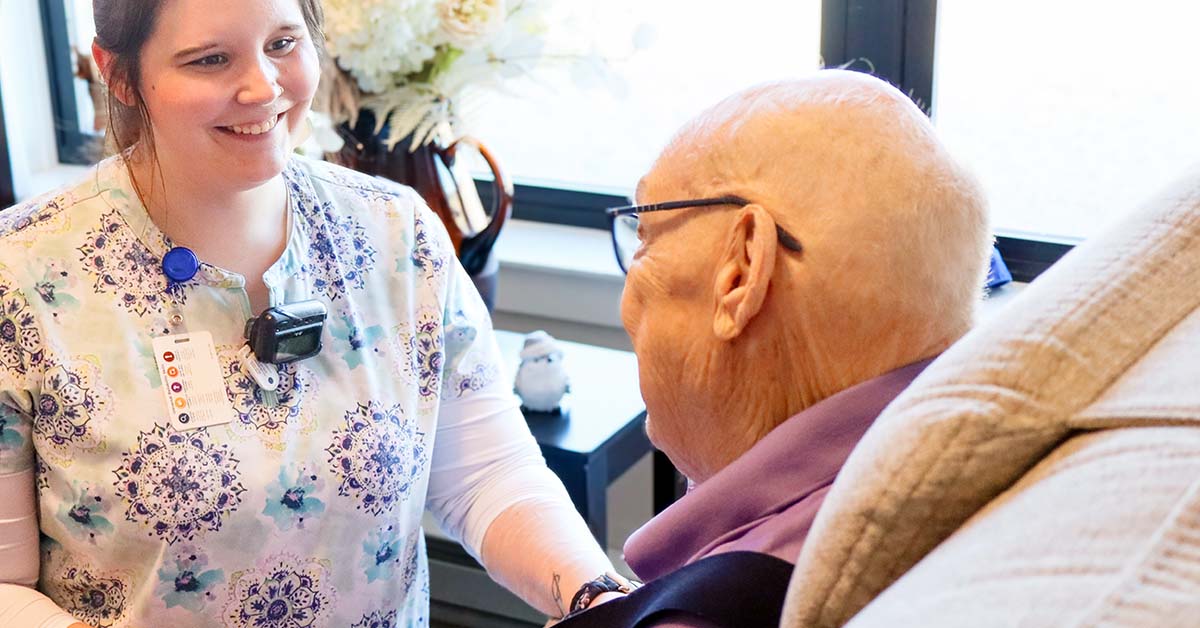
The Village Team
As we age, cognitive health becomes essential to maintaining quality of life. Cognitive Stimulation Therapy (CST) is a research-backed approach that supports people with mild to moderate memory challenges, keeping them mentally active and engaged. At The Village, CST plays a key role in our memory care programs, offering structured activities that enhance thinking skills, communication, and emotional well-being.
What is Cognitive Stimulation Therapy?
Cognitive Stimulation Therapy is an evidence-based program involving guided group activities designed to strengthen memory, problem-solving, and social interaction. It leverages neuroplasticity—the brain’s ability to form new connections—to help slow cognitive decline and improve daily functioning.
At The Village, our Memory Care Nurse Supervisor, Sarah Whitney, RN, CDP, is certified in CST. This training and leadership allow our team to offer more than standard memory care activities by providing a structured, scientifically supported approach that fosters meaningful engagement and lasting benefits.
How Does CST Work?
CST sessions are conducted in small groups, where trained facilitators guide participants through engaging activities such as:
-
Word games and puzzles – Improve language, memory, and problem-solving skills.

-
Reminiscence exercises – Encourage participants to share personal stories, strengthening long-term memory and social bonds.
-
Creative activities – Incorporate art, music, and storytelling to boost self-expression and cognitive flexibility.
-
Sensory stimulation – Use sounds, textures, and scents to activate different areas of the brain.
-
Physical movement – Gentle exercises help improve circulation, mood, and brain function.
These structured activities create an engaging and supportive environment. In fact, research shows that this therapy improves memory, language skills, and problem-solving abilities while enhancing the overall well-being of someone struggling with dementia-related symptoms.
The Benefits of Cognitive Stimulation Therapy
CST is more than mental exercise—it’s a holistic approach that supports cognitive function, emotional health, and social interaction. It’s not just about keeping the mind active; it’s about creating moments of joy, confidence, and connection. Whitney shares how CST is making an impact on our memory care residents:
"I am excited to already see more engagement from the residents. They are enjoying the new programming, and I see their confidence growing when they succeed with the challenges presented to them. They like the variety, and they don’t even realize that they are ‘exercising’ their brain because it is fun, social, and interactive."
This kind of meaningful engagement is what makes CST so valuable. It’s not just about the cognitive exercises; it’s about fostering a sense of purpose and well-being. Key benefits include:
1. Cognitive Health & Mental Agility

-
Slows cognitive decline: Regular mental activities sharpen memory, attention, and decision-making.
-
Supports neuroplasticity: Stimulating new neural connections may help delay dementia symptoms.
2. Emotional Well-Being
-
Reduces stress and anxiety: Purposeful activities foster a sense of accomplishment.
-
Builds confidence: Completing tasks successfully boosts self-esteem and motivation.
3. Social Interaction & Connection
-
Encourages friendships: Group activities provide opportunities for meaningful social engagement.
-
Reduces isolation: CST sessions offer a structured way to stay connected with others.
4. Daily Functioning & Independence
-
Enhances problem-solving skills: Practical decision-making exercises support independence.
-
Promotes routine-building: Feeling capable in daily tasks can reduce reliance on caregivers.
5. Meaningful & Enjoyable Engagement

-
Variety of activities: Music, storytelling, and interactive games make participation enjoyable.
-
Sense of achievement: Learning new skills provides joy and personal fulfillment.
Through these benefits, CST helps residents feel more engaged, confident, and socially connected, making each day more fulfilling. By prioritizing enjoyable activities that enhance cognitive function helps ensure that residents receive the support they need while maintaining their sense of independence and joy.
CST for Dementia & Alzheimer’s Disease
For individuals with mild to moderate dementia, CST is particularly effective in maintaining cognitive function and enhancing daily life. Studies show participants experience:
-
Slower cognitive decline – CST may delay the progression of memory loss.
-
Improved communication – Enhanced language and social interaction skills.
-
Reduced anxiety and depression – Structured activities help ease emotional distress.
While CST is not a cure, it is a valuable tool in dementia care, complementing other therapies to support brain health and maintain independence as long as possible.
The Future of Cognitive Stimulation Therapy
As the understanding of cognitive health deepens, researchers continue to refine and expand CST to make it even more effective. The future of CST is being shaped by innovations that improve accessibility, engagement, and long-term impact. These advancements aim to provide even more personalized and effective cognitive care solutions.
Emerging studies explore:
-
Digital and virtual CST programs – Online tools expand access to therapy, allowing individuals to participate from the comfort of their homes.
-
Virtual reality (VR) applications – Immersive experiences may enhance engagement and memory retention by creating realistic and stimulating environments.
-
Combination therapies – Pairing CST with physical activity and nutrition may amplify cognitive benefits, supporting overall brain and body wellness.
By integrating technology, expanding accessibility, and adopting a multi-faceted approach, the future of CST holds promise for enhancing memory care. As research continues, these advancements will help individuals with memory challenges maintain cognitive function and a fulfilling quality of life for as long as possible.
Personalized Memory Care at The Village
Cognitive Stimulation Therapy is a research-supported approach to memory care. The Village provides a supportive environment where residents with memory challenges thrive by emphasizing structured cognitive activities and social interaction. Our dedicated team is here to help families navigate memory care with compassion and expertise, ensuring every individual enjoys a fulfilling and enriched life.





Post a comment